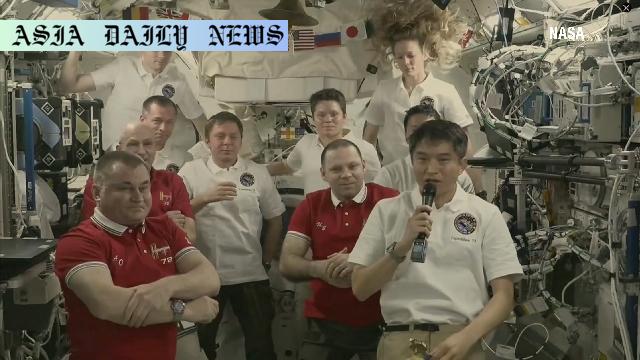Onishi Takuya: The third Japanese astronaut to command the ISS, emphasizing his country’s growing impact on space exploration.
Onishi Takuya has become the third Japanese astronaut to command the ISS.
A traditional handover ceremony symbolized his new leadership responsibility.
His appointment reflects Japan’s contributions to space exploration.
The mission will last for about six months, with safety and mission success as priorities.
Onishi follows Wakata Koichi and Hoshide Akihiko in the significant role.

The Iconic Handover of Command
On March 16, Japanese astronaut Onishi Takuya arrived at the International Space Station (ISS) aboard the Crew Dragon spacecraft. Joining three other crewmembers, he embarked on a six-month mission to contribute to space exploration alongside his international counterparts. On Saturday, following an established protocol, a symbolic command handover took place. The outgoing Russian commander, Alexey Ovchinin, ceremonially handed Onishi the “key” to the ISS during the change-of-command ceremony. This key is more than just a figurative representation; it signifies the authority and responsibility bestowed upon the new commander, ensuring the crew’s safety and the mission’s objectives.
Japan’s Growing Impact on Space Exploration
Onishi Takuya’s appointment as ISS commander is not merely an individual achievement—it reflects Japan’s steadily increasing role in global space exploration. He follows in the footsteps of two esteemed Japanese predecessors, Wakata Koichi and Hoshide Akihiko, who commanded the ISS in 2014 and 2021 respectively. This recognition of Japanese leadership in space underscores the country’s consistent investment in innovative technologies and international collaboration. As Onishi remarked during his acceptance of the role, his selection is a testament to Japan’s contributions to manned space exploration. It also sets the stage for Japan’s expanding role in shaping the future of space endeavors.
Roles and Responsibilities of an ISS Commander
The role of an ISS commander carries substantial responsibilities, ranging from ensuring the safety and welfare of the crew to overseeing the completion of mission objectives. Onishi now shoulders these critical tasks, setting an example of leadership and teamwork. Working in coordination with an international crew, his role involves managing resources, overseeing daily operations, and addressing unforeseen challenges. The commander’s leadership is essential for maintaining harmony among the crew and ensuring that the collaborative spirit of the ISS is upheld. Onishi’s commitment to serving in this vital capacity speaks to his resilience and dedication to advancing human knowledge through space exploration.
Symbolism in Leadership: A Vision for the Future
Onishi Takuya’s tenure as ISS commander is a reflection of humanity’s unified efforts in space exploration. The trust placed in him is a significant indicator of progress—one that celebrates not just Japanese achievements but also the collaborative power of international partnerships. As the ISS continues its mission as a hub for scientific research and technological experimentation, his leadership will contribute to paving the way for further advancements in human space exploration. Whether it be technological solutions or fostering cross-cultural collaborations, Onishi’s role is both symbolic and practical, representing a shared vision for mankind’s journey beyond Earth.



Commentary
A Symbolic Milestone for Japan
The appointment of Onishi Takuya as the third Japanese commander of the International Space Station is more than just an individual accolade—it’s a national milestone. As the global space community acknowledges Japan’s contributions, this achievement reinforces the country’s commitment to advancing manned space programs. It’s inspiring to witness a nation often recognized for its rich culture and technological advances now taking a leading role in space exploration.
The Importance of Leadership in Space
Assuming command of a complex and high-stakes environment like the ISS is no ordinary feat. The responsibility that Onishi now bears serves as a testament to his expertise and the trust that the global space community has placed in him. It highlights the level of preparation and perseverance it takes to lead in such an environment, where collaboration and quick decision-making could mean the difference between success and failure.
Paving the Way for Future Generations
Onishi’s new role as ISS commander is not just a reflection of his own achievements but also a beacon of inspiration for the future generations of astronauts, engineers, and scientists. By showcasing what dedication and collaboration can achieve, it encourages young minds worldwide to reach for the stars—literally. Japan’s prominent role in the ISS underscores how global partnerships can unlock new frontiers and possibilities in space exploration. His leadership will undoubtedly serve as one of many stepping stones to even greater accomplishments.